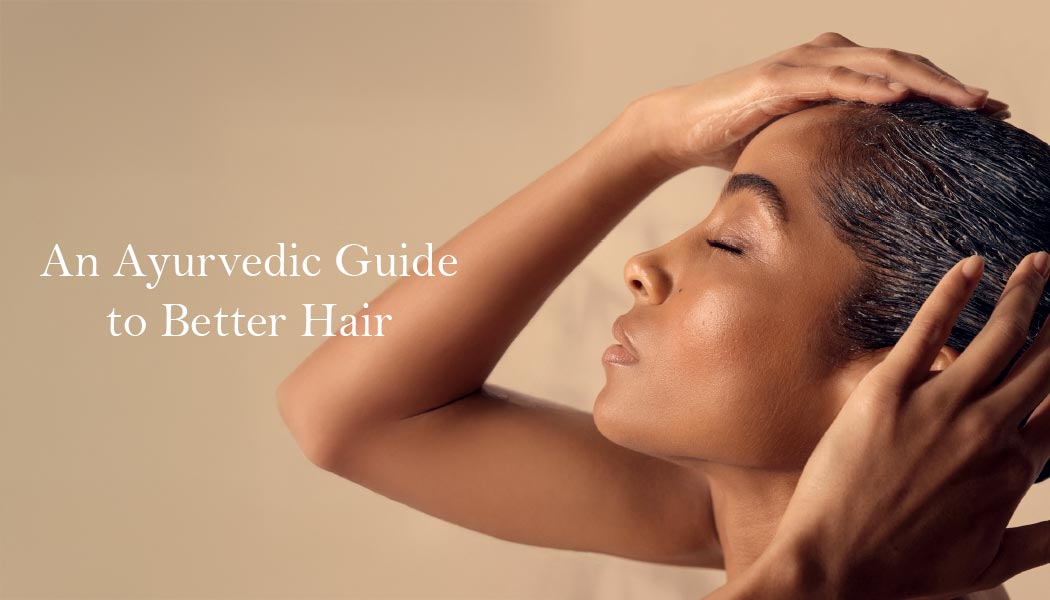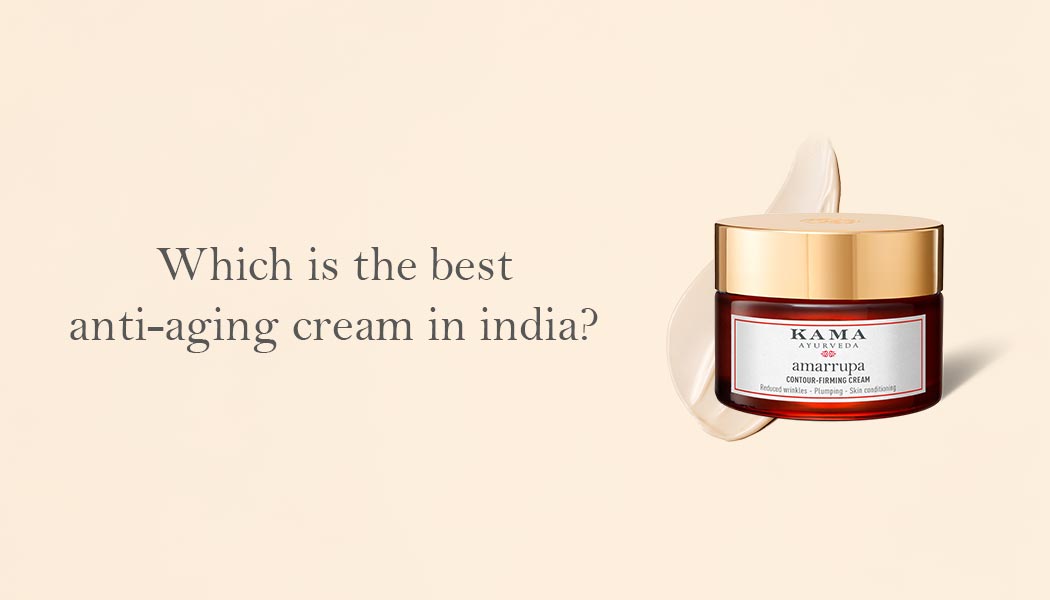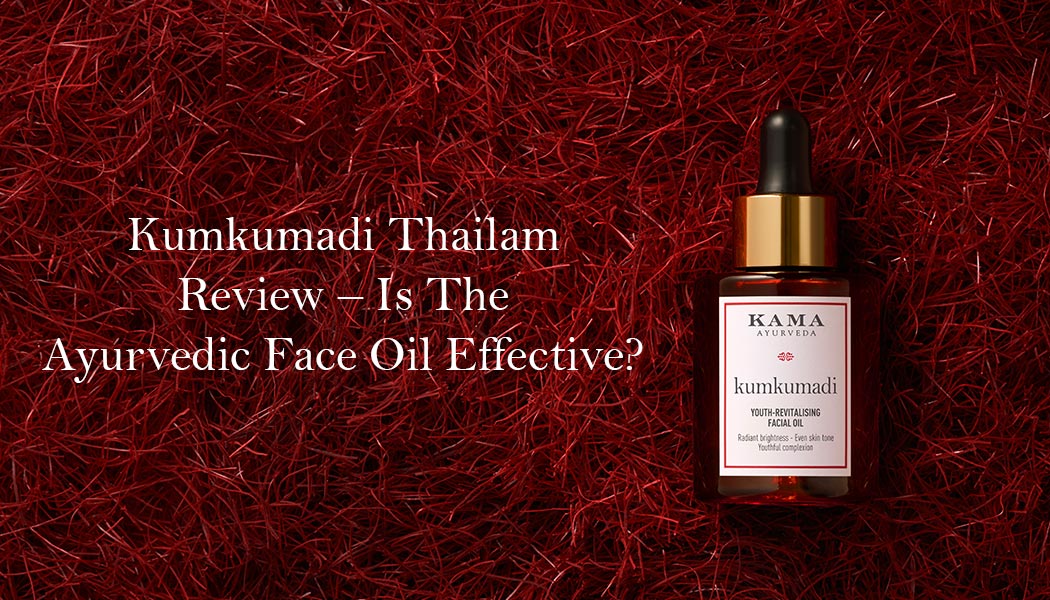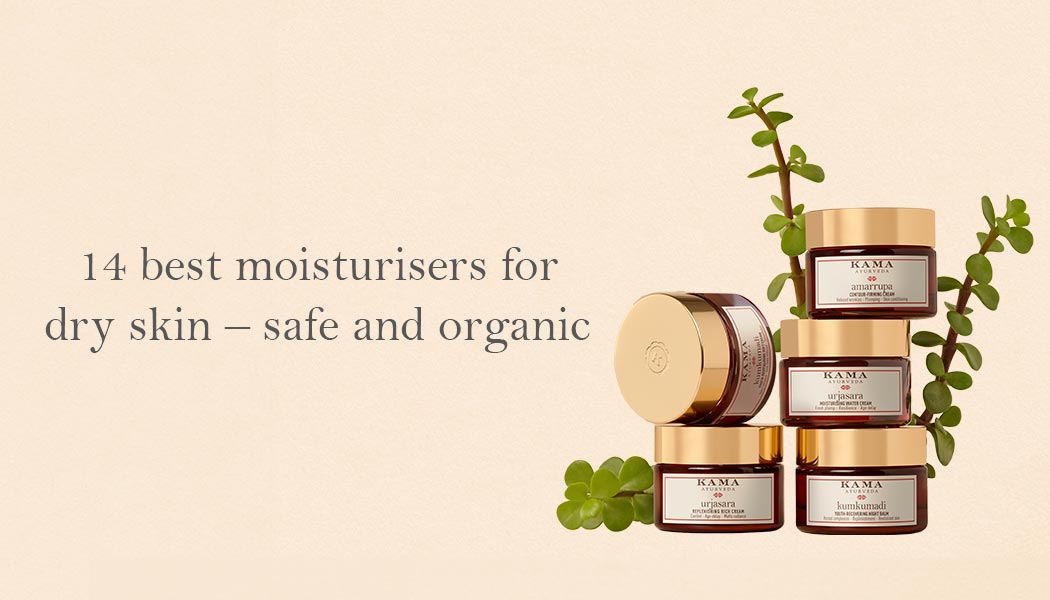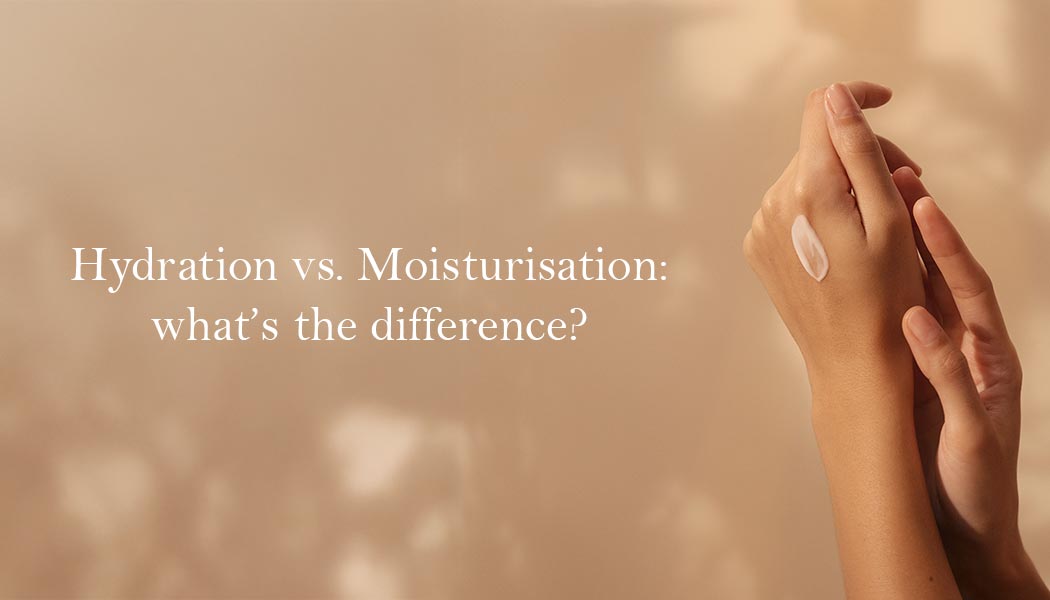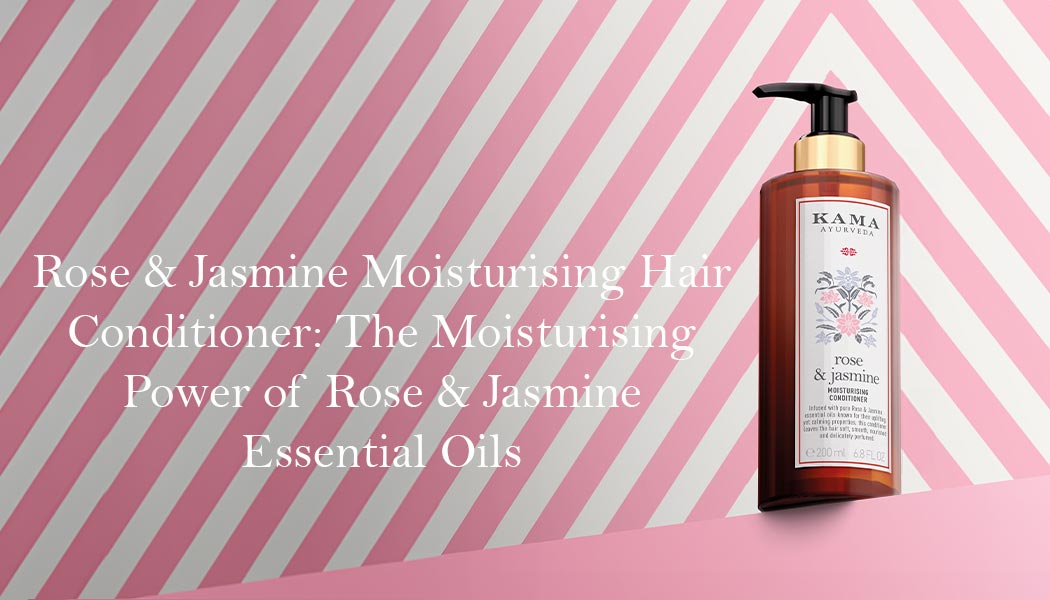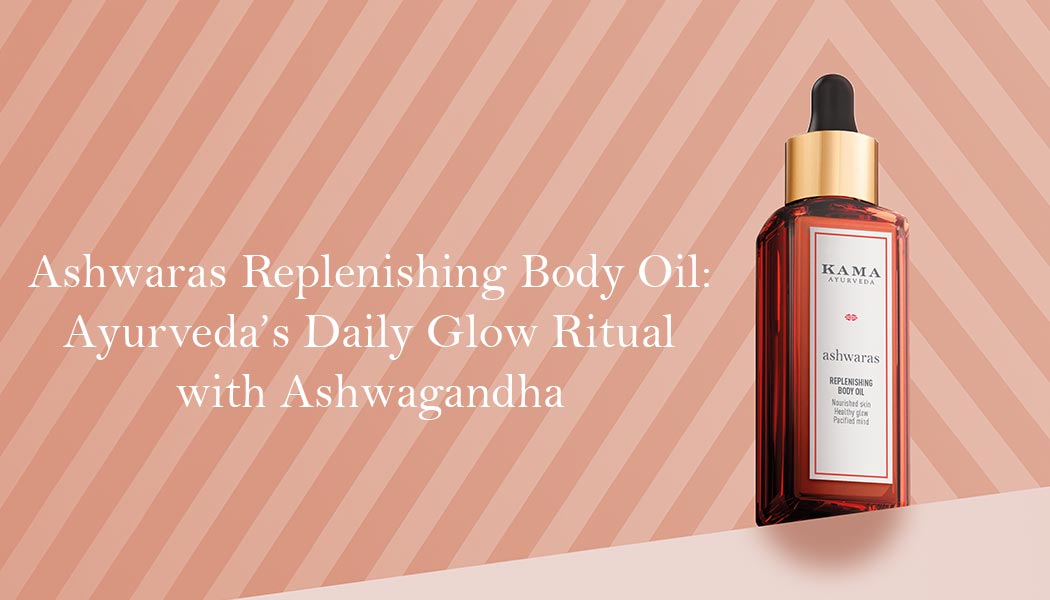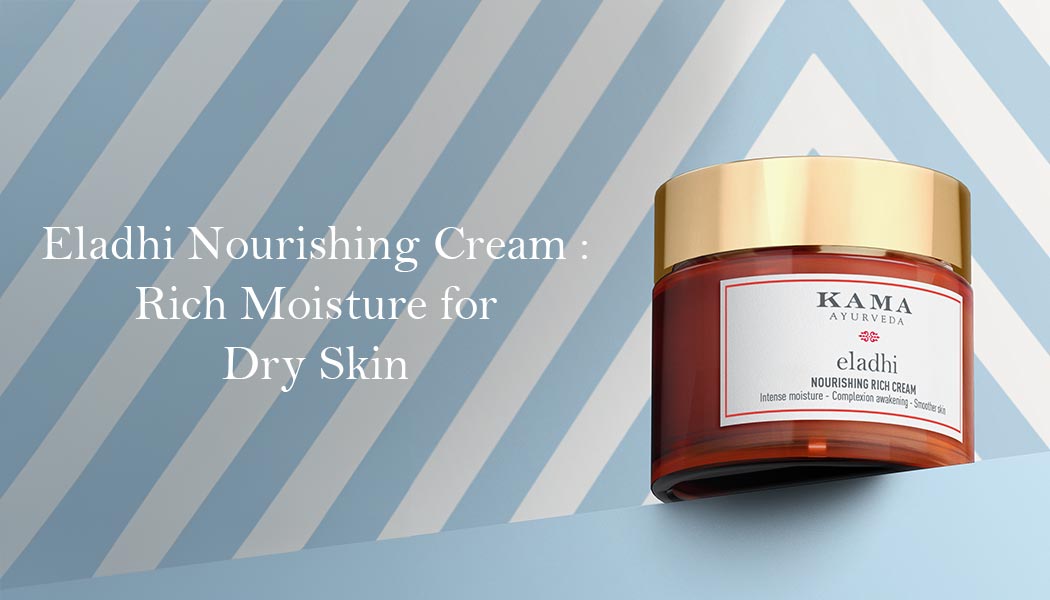- 3 March 2020
- 15 mins read
Dark spots can be a common concern for many, often leading to a search for effective remedies. While makeup might offer a quick fix, it's essential to understand the real cause behind these spots.
At the heart of this issue is melanin, the pigment that gives our skin its color. But why does it sometimes result in dark patches? What triggers its overproduction?
Let's delve into the science behind dark spots and explore effective ways to diminish them.
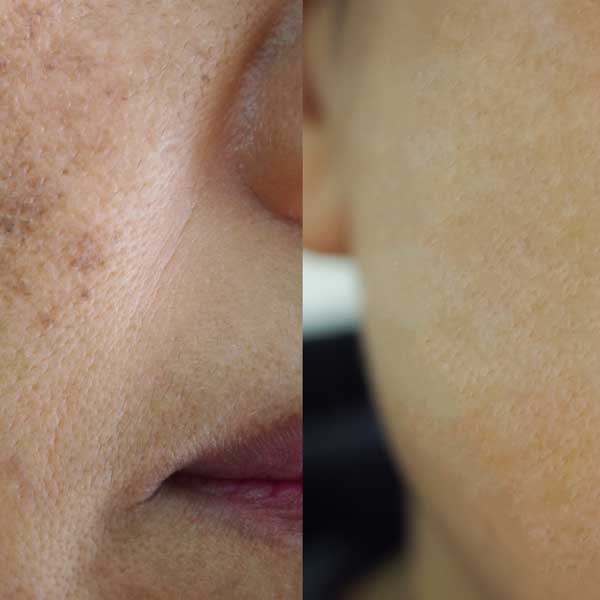
Another problem that’s closely linked with dark spots is skin pigmentation. So, let’s understand what skin pigmentation is and how it is related to dark spots. Later in this article, we’ll explore the causes of dark spots on the face and body and list some natural remedies to get rid of dark spots. In the end, we will be looking at some preventive measures to reduce the appearance of such dark spots. Let’s get started.
What causes dark spots on the face and body?
Dark spots are caused when certain parts of the skin produce more melanin than the other areas. Apart from sun exposure, hormonal changes, inflammation, conditions like diabetes also influence the production of melanin.
Some of the most common reasons behind dark spots are discussed below:
- Hormonal changes:
Hormonal changes can be a leading cause of skin pigmentation, especially for women. Melasma is a type of skin pigmentation that appears in the form of dark patches, usually on the cheeks or forehead. This condition is prevalent after pregnancy.
- Sun exposure:
Exposure to the harmful UV rays of the sun can cause dark spots to appear on the skin. Freckles, sunspots, solar lentigines, or liver spots are the most common type of pigmentation that can be developed due to exposure to the sun. These can be prevented by healthy sun screening habits developed at a very young age.
- Side effects of medication:
Certain medications can cause specific side effects, such as skin pigmentation and dark spots. NSAIDs or non-steroidal anti-inflammatory drugs produce the most common reactions.
- Inflammation:
Dark spots may also occur after skin inflammation or injuries to the skin. These can be caused by acne or even eczema.
- Irritation due to certain products:
Sometimes, the use of certain products like perfumes or certain hair products can cause skin irritation, causing dark spots to appear on the skin.
- Diabetes:
Diabetes can also cause certain areas of the skin to produce more melanin, leading to dark patches.
As you can see, there are varying reasons for developing dark spots, which brings one crucial question. How to remove dark spots from our skin?
First, we’ll look at some of the most effective natural remedies to help get rid of dark spots.
Home Remedies For Dark Spots On Face
Did you know that some of the most effective solutions for dark spots might be sitting right in your kitchen pantry? Nature has blessed us with a plethora of ingredients that not only nourish our insides but can also address various skin concerns.
Let's explore these age-old home remedies that have been passed down through generations and understand how they can be your skin's best friend.
1. Aloe Vera
Aloe vera isn't just a plant; it's a skin savior. Comprising 90% of the body's amino acids and a powerhouse of vitamins A, B, C, and E, its benefits are manifold. From anti-aging to skin nourishment, aloe vera addresses dark spots, reduces skin discoloration, and even offers pain relief with its antiseptic properties.
How To Use:
- Apply Aloe Vera juice or pure Aloe Vera gel directly to areas with hyperpigmentation.
- Let it sit for 30 minutes during both morning and evening routines.
- Rinse your face with lukewarm water.
2. Turmeric
Turmeric's active compound, curcumin, is a powerful antioxidant with anti-melanogenic effects. This means it can naturally reduce melanin production, lightening dark spots and bestowing a radiant, clear complexion.
How To Use:
- In a bowl, mix one teaspoon of turmeric powder, 1-2 teaspoons of milk, and one teaspoon of lemon juice.
- Blend until you achieve a smooth paste consistency.
- Apply the paste to your face, allowing it to sit for 20 minutes.
- Rinse with lukewarm water and follow up with your favorite moisturizer.
- Witness a noticeable difference in just 2 days, as this regimen naturally fades spots.
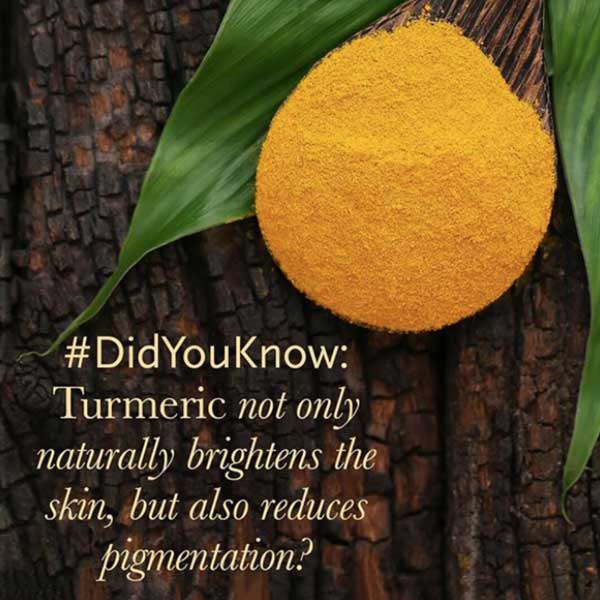
3. Oatmeal
Oatmeal, often celebrated for its soothing properties, also offers a natural remedy for dark spots. Its exfoliating properties help in removing dead skin cells, which can reduce the appearance of dark spots over time. The amino acids in oatmeal help to lighten blemishes and discolorations on the skin.
- Grind whole oats to a fine powder.
- Mix the oat powder with lemon juice, known for its skin-lightening properties.
- Add a touch of honey for its moisturizing and antibacterial benefits.
- Apply the mixture to areas with dark spots and let it sit for 20 minutes.
- Rinse with lukewarm water, gently massaging in circular motions.
- Repeat regularly for best results.
4. Tomato paste:
Tomato paste is a valuable tool against dark spots. This is mainly due to its rich lycopene content, a powerful antioxidant. Lycopene protects the skin from sun-induced damage, a primary cause of dark spots.
Tomatoes also have natural astringent properties, which tighten the skin and make dark spots less visible. Their vitamin C content can inhibit melanin production, potentially lightening these spots.
Additionally, the mild acidity in tomatoes provides gentle exfoliation, promoting skin renewal. This results in a brighter complexion.
- Extract the pulp from a fresh tomato to get tomato paste.
- Apply the tomato paste evenly on your face.
- Allow it to sit for about 10 minutes.
- Rinse with cold water for a refreshing feel.
- Experience skin that's soft, silky, and radiates health.
5. Manjistha:
As a potent blood purifier, Manjistha treats the skin from within, promoting a radiant and youthful complexion. Its unique combination of sweet, bitter, and acidic flavors classifies it as an effective pitta pacifier. For addressing dark spots, Manjistha capsules can be consumed once or twice daily. You can also use it as a face pack -
- Mix Manjistha powder with honey to form a smooth paste.
- Apply the mixture evenly across your face.
- Leave it on for 15-20 minutes.
- Rinse thoroughly with water and pat your skin dry.
6. Buttermilk
Buttermilk, a natural source of lactic acid, is an excellent remedy for rejuvenating the skin. Lactic acid aids in exfoliating dead skin cells, paving the way for a brighter complexion and lightening dark spots.
- Dip a cotton ball into fresh buttermilk.
- For oily or acne-prone skin, add a few drops of lemon juice to the buttermilk.
- Gently apply the mixture directly onto the dark spots.
- Allow it to sit for 20 minutes.
- Rinse your face with clean water.
- With consistent use, you'll notice a clearer complexion and diminished dark spots.
7. Masoor Dal ( Red Lentils):
Red lentil, commonly known as Masoor dal, is a potent remedy for hyperpigmentation on the face. Packed with antioxidants, these lentils offer numerous skin benefits, promoting a clearer and more even complexion.
- Grind dried red lentils to a fine powder.
- Mix the powder with water or yogurt to form a smooth paste.
- Apply the paste evenly on your face, focusing on areas with hyperpigmentation.
- Leave it on for 20 minutes.
- Rinse off with cool water.
- With regular application, you'll observe a reduction in hyperpigmentation and a brighter skin tone.
8. Green Tea Extract:
Packed with antioxidants, especially catechins, green tea helps combat skin damage and reduce the appearance of dark spots.
- Brew a strong cup of green tea and allow it to cool.
- Dip a cotton ball into the cooled green tea.
- Gently dab the cotton ball onto areas with dark spots.
- Leave it on for 15-20 minutes.
- Rinse off with cool water.
9. Sandalwood:
Sandalwood, revered in traditional skincare routines, is a potent solution for dark spots. Its has natural skin-brightening properties.
- In a bowl, combine 1 teaspoon of sandalwood powder, 1 teaspoon of orange zest, and enough orange juice to form a thick paste.
- Apply the mixture to your face, giving special attention to areas with dark spots.
- Allow the mask to sit for 20 minutes.
- Gently rinse off with lukewarm water.
- For best results, repeat this process two to three times a week
10. Apple Cider Vinegar:
Apple cider vinegar (ACV) is renowned for its acidic properties and rich content of acetic acid, making it a popular choice for addressing skin concerns, including dark spots. Its natural exfoliating effect helps in reducing the appearance of these spots, promoting a more even skin tone.
- Dilute apple cider vinegar with an equal amount of water to ensure it's gentle on the skin.
- Soak a cotton ball in the diluted ACV solution.
- Apply it directly onto the dark spots, ensuring even coverage.
- Leave it on for 15-20 minutes.
- Rinse off thoroughly with lukewarm water.
- Repeat this process daily or every alternate day for optimal results.
11. Yogurt
Rich in lactic acid, Yogurt not only exfoliates the skin but also addresses discoloration and age spots. Beyond just lightening, Yogurt enhances the skin's tone and texture, while its anti-inflammatory properties help reduce redness and irritation.
- Take a tablespoon of plain yogurt in a bowl.
- Using clean fingers or a brush, apply the yogurt directly to areas with dark spots.
- Allow it to sit on the skin for 15-20 minutes.
- Rinse off gently with lukewarm water.
- For best results, apply daily or every alternate day
12. Papaya
Papaya owes its skin-rejuvenating properties to the fruit acids it contains, specifically alpha-hydroxy acids (AHAs). These AHAs serve as chemical exfoliants, aiding in the removal of dead skin cells, revealing a brighter and more youthful complexion beneath.
Particularly beneficial for those with dry skin, hyperpigmentation, and fine lines, papaya is a natural solution to get glowing skin.
- Mash a few pieces of ripe papaya in a bowl to form a smooth paste.
- Apply the papaya paste directly onto areas with dark spots or the entire face for an overall glow.
- Let it sit for 15-20 minutes.
- Wash off gently with lukewarm water.
- Use this treatment 2-3 times a week for optimal results.
13. Saffron
Revered in Ayurveda for its skin-enhancing properties, Saffron is known to brighten the complexion, reduce dark spots, and impart a radiant glow. Rich in antioxidants, saffron combats free radicals, preventing skin damage and promoting an even skin tone.
- Soak a few strands of saffron in 2 tablespoons of water or milk for a couple of hours.
- Once the liquid takes on a golden hue, apply it directly to the areas with dark spots using a cotton ball or your fingertips.
- Allow it to sit for 15-20 minutes.
- Rinse off gently with lukewarm water.
Repeat this process 2-3 times a week for best results.
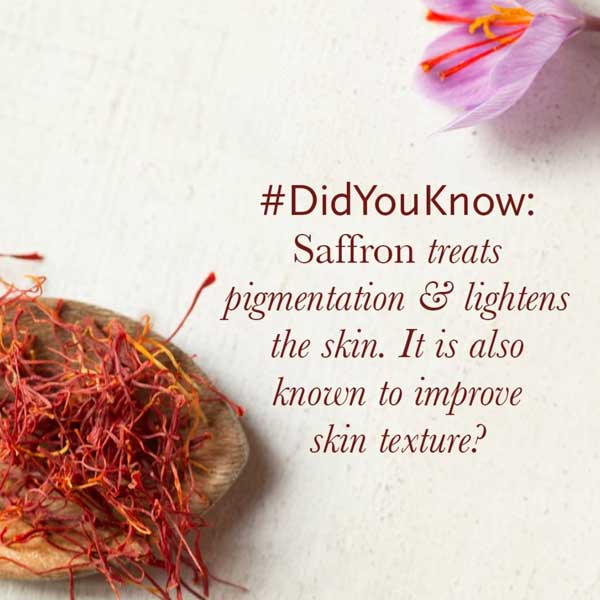
14. Cucumber
Known for its cooling and hydrating properties, cucumber is rich in vitamins and antioxidants that help reduce dark spots and soothe irritated skin. Its natural astringent properties help tighten the skin, making dark spots less noticeable.
- Grate a fresh cucumber to extract its juice or blend it to form a smooth paste.
- Apply the cucumber juice or paste directly onto areas with dark spots.
- Let it sit for 15-20 minutes, allowing the skin to absorb its nutrients.
- Rinse off gently with cool water.
- For best results, apply daily or every alternate day.
Read - How To Use Tea Tree Oil For Dark Spots?
What is skin pigmentation?
You might have come across terms like 'skin pigmentation' or 'hyperpigmentation' and wondered if they're just fancy names for dark spots. Let's help you with the answers -
Skin pigmentation, often referred to as hyperpigmentation, encompasses a range of conditions that result in darkened patches of skin. At the core of this is melanin, the pigment that gives our skin its hue.
While melanin is typically spread evenly, certain triggers can cause parts of the skin to produce more melanin, leading to dark spots. Common culprits include prolonged sun exposure and hormonal changes.
Dark spots are just a subset of skin pigmentation issues.
Regardless of the type of pigmentation, one universal remedy is diligent sun protection. Whatever the type of pigmentation, it can be managed by limiting sun exposure and regular use of sunscreen.
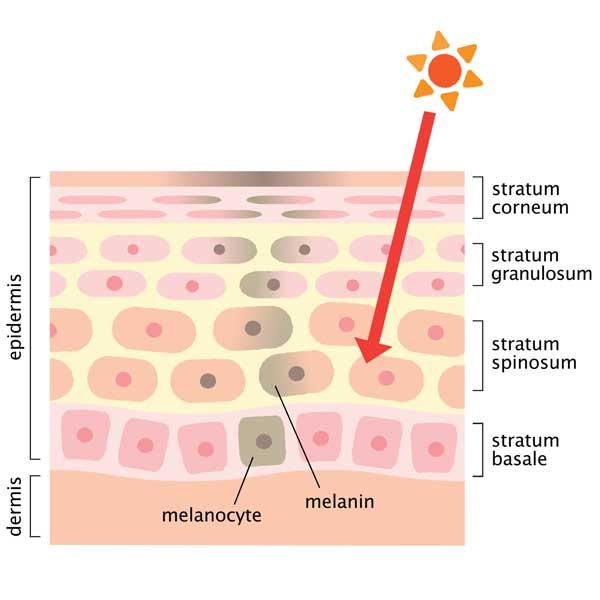
Best Skin Care Habits To Prevent Dark Spots
With dark spots, it is always better to be safe than sorry. Here are some tips to prevent the appearance of dark spots on the skin:
- Prioritize Sun Protection: Sunscreen is your first line of defense. Opt for one with an SPF of at least 20 and make it a habit to reapply every 2 to 3 hours, especially when outdoors.
- Nourish from Within: A balanced diet rich in vitamins and minerals can do wonders for your skin. Prioritize fruits and vegetables that are nutrient-dense to maintain a radiant complexion.
- Add Supplements: If your diet falls short, consider nutritional supplements. Over-the-counter options like Vitamin C and other antioxidants can help bridge dietary gaps.
- Quit Smoking: Smoking isn't just harmful to your lungs; it can also impact your skin. Research links cigarette smoking to various skin issues, including dark spots.
- Extra Sun Safeguards: Enhance your sun protection by donning a wide-brimmed hat and sunglasses. These accessories offer additional defense against the sun's harsh rays.
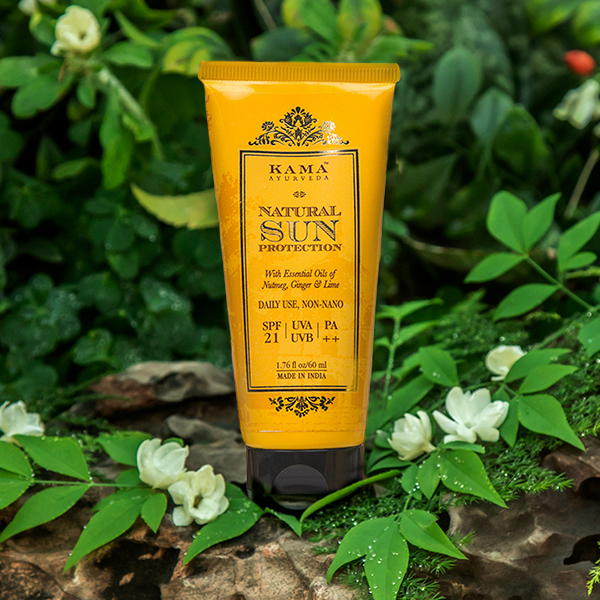
Kama Ayurveda’s Natural Sun Protection is effective in blocking UVA and UVB rays and preventing the appearance of dark spots. It is a gentle, non-comedogenic, non-greasy formula suited to sensitive & oily skin.
Ayurvedic Treatment Of Dark Spots
There are traditional Ayurvedic ingredients as well that use the energy of herbs and oils to treat dark spots. Below are a few Ayurvedic treatments that you can regularly use if you are suffering from dark spots.
1. Kumkumadi Thailam
The legendary Kumkumadi oil is prescribed for dull, pigmented, damaged, and aging skin. If your concern is how to remove dark spots from your face, then this Ayurvedic treatment is perfect for you. The key ingredient, Saffron, helps illuminate the complexion and repair pigmentation. Kama’s Kumkumadi Miraculous Beauty Fluid Night Serum is one such oil suitable for the face.
After cleansing, dampen your skin. Take 3-4 drops of Kumkumadi oil on your palm, apply over the face with fingertips and gently massage onto the skin until fully absorbed. Allow it to work overnight for the best results. For nightly use only and should not be applied during the daytime.
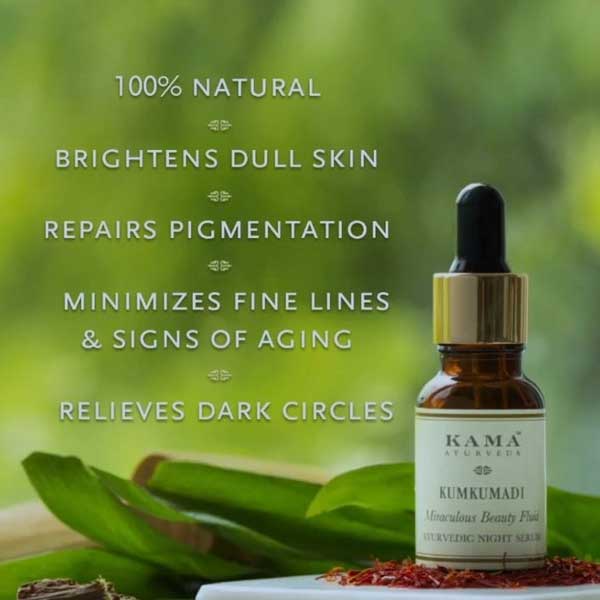
2. Nalpamaradi Thailam
Nalpamaradi Thailam is a powerful skin brightening and de-tanning treatment. It is a mix of Sesame oil, Vetiver, Turmeric, Gooseberry, and Indian Madder. The potent Turmeric present in the oil has antioxidant properties that repair pigmentation, uneven skin tone and marks.
To use the oil for dark spots and pigmentation, gently massage it into the skin, ensuring the affected body parts are covered. The treatment works best if left on for 30 minutes. Cleanse post-treatment with a mild cleanser. This oil may stain yellow due to ingredients such as Turmeric; hence suitable precautions must be taken while using it.
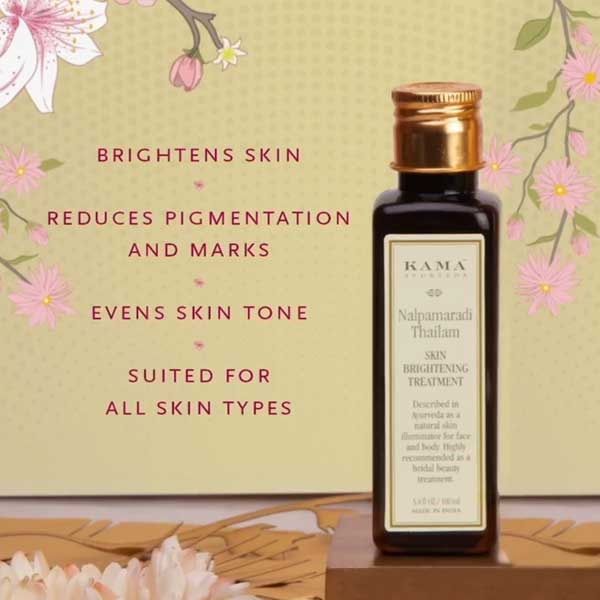
3. Jwalini Oil
Described in the Ancient texts, Jwalini Oil is the ideal treatment for clear skin. It contains herbs that are processed in pure Coconut milk and Sesame oil. It is an excellent after-sun remedy that treats tan and hyperpigmentation. You can apply it all over your body. It’s suitable for all skin types but not ideal for those with acne-prone skin.
To get the best results, take an appropriate amount onto palms and massage gently into skin until well-absorbed. Leave on for 30 minutes and wash off with a mild cleanser.
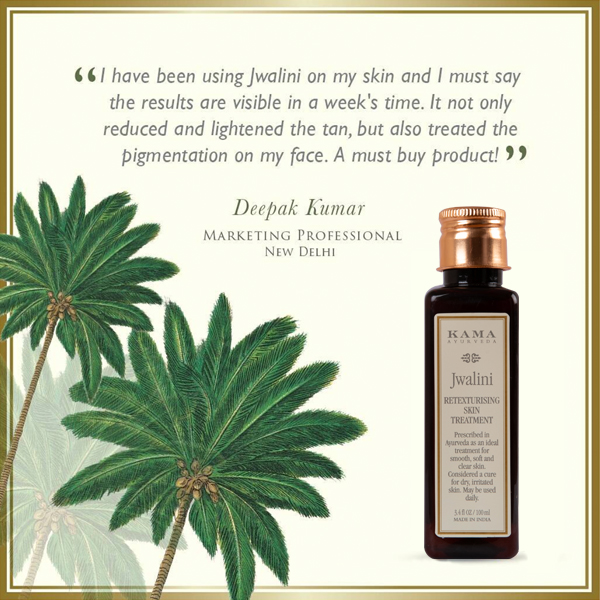
4. Ayurvedic Night Cream For Dark Spots
As we sleep during the night, our skin is busy rejuvenating and repairing itself. Using a suitable night cream overnight can reduce the appearance of dark spots and can even fade the existing dark spots.
Kama Ayurveda Rejuvenating and Brightening Night Cream is an Ayurvedic night cream that works effectively to remove dark spots from your skin. It is rich in Saffron, which lightens and brightens the uneven skin, reduces dark circles and pigmentation marks while also repairing fine lines, age spots, and other signs of aging.
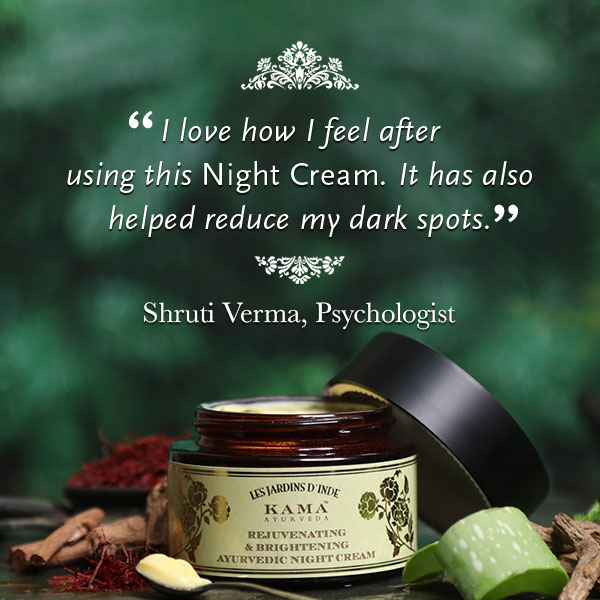
Dark Spots vs. Acne Scars
Distinguishing between dark spots and acne scars is vital, as their treatments diverge significantly. While dark spots tend to be superficial, acne scars delve deeper, often causing more lasting damage. What we might brush off as mere dark spots could, in reality, be underlying acne scars.
Post-inflammatory hyperpigmentation refers to the brownish spots that linger after a bout of mild to moderate acne. These marks, though persistent, fade over time. In contrast, acne scars result from damage to deeper skin layers, typically stemming from moderate to severe acne episodes.
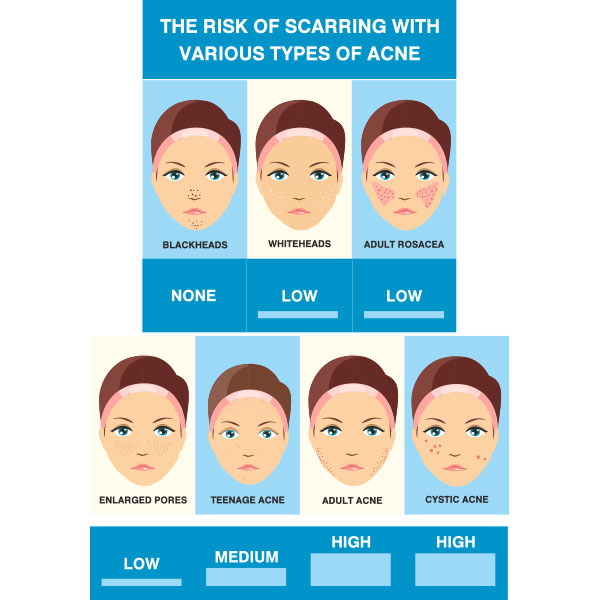
We are all guilty of popping zits, and it turns out that this is the most common reason for acne scars. Some of the types of acne scars are:
- Ice Pick Scars: Deep and narrow, these scars have jagged edges, often resembling enlarged pores.
- Boxcar Scars: Characterized by broad, rectangular depressions with sharp edges.
- Rolling Scars: Broad depressions with a gentle slope, true to their name.
Scars result from excessive tissue growth and can be challenging to eliminate entirely, though they may face over time. On the brighter side, dark spots can disappear over time, ranging from a couple of months to a few years.
Other Pigmentation treatments:
There are other dark spot treatments as well, which involve the use of chemicals. We do not recommend these treatments as they are not suitable for all skin types and might cause side-effects.
However, to provide you with complete knowledge on the subject, we’re listing some of these chemical treatments. Remember to consult a dermatologist and take professional advice before going forward with any of them.
- Face acids:
Face acids work by exfoliating and shedding the top layer of your skin so that new cells emerge and take the place of old cells. The process evens out the skin and makes it smoother. Various acids are available in the market, but the most common ones are Vitamin C and Salicylic acid. - Chemical peels:
Chemical peels use acids at a stronger concentration to peel the outer layer of the skin. It is advisable to consult a dermatologist before going ahead with chemical peels to treat dark spots. - Laser peel:
Laser peel treatment uses targeted beams of light to treat hyperpigmentation and dark spots. There are different types of laser peels. Your doctor or skin care specialist will assess your skin and suggest the best form of treatment. - Intense pulse light therapy:
IPL therapy is a type of non-ablative laser treatment that is also known as photo facial. IPL therapy usually requires multiple sessions. It promotes collagen production within the skin. - Microdermabrasion:
Microdermabrasion is a clinical procedure used to treat hyperpigmentation that affects the epidermis only (superficial scarring). It works best on superficial scars.
Frequently Asked Questions About Dark Spots
1. How to remove dark spots on face overnight?
While we all want quick solutions to our skin problems, it's not possible to altogether remove dark spots from the face overnight. There are, however, some things that you can do to get rid of them quickly.
- Try out this natural remedy - Take out potato juice and massage it into your skin every day.
- Use a night cream or night serum to treat your dark spots. Allow it to work overnight for the best results.
2. How to remove dark spots caused by pimples?
As we discussed earlier in the article, spots caused by acne or pimples are called acne scars. Unlike dark spots, they are not caused by pigmentation and are difficult to remove. In Ayurveda, Red Sandalwood is considered a useful ingredient for lightening acne scars. You can use Anti-Acne Face Pack with Red Sandalwood as one of the ingredients to lighten dark spots caused by pimples.
3. How to remove dark spots on face fast?
Removing dark spots from the face is a slow process. While some chemical treatments may help you remove dark spots on face fast, they might have side-effects.
We recommend that you start by developing sun-screening habits and apply night cream or night serum that helps in removing dark spots. Occasionally, treat your face with natural ingredients like lemon juice or potato juice to further accelerate the process. We’ve already shared a list of natural remedies in the article.
4. How to use lemon on face for dark spots?
Lemon is the most common natural ingredient used to treat dark spots as it is rich in Vitamin C. It’s easy to use lemon on your face for dark spots. Just squeeze the lemon into a bowl and add equal parts of water. Applying lemon juice on the skin without diluting might result in irritation. Use a cotton ball to apply the mixture directly to the areas with dark spots on your face and hands. If your face has any bruises, cuts, or dry skin patches, make sure you avoid them while applying lemon on your skin.
Conclusion
In most cases, dark spots on the skin are not a cause of concern, except for cosmetic reasons. However, it is advised to see a doctor if any of the dark patches on the skin either itches, bleeds, tingles, or changes in colour or size as these may be indicators of skin cancer. It is also important to understand that all of the solutions mentioned above might not suit everyone. It is advisable to do a patch test first before applying anything to the face. Home remedies and healthy skincare habits are for everyone, but remember to consult a doctor before trying out chemical peels and other hyperpigmentation treatments.
References -
- Research on skin hyperpigmentation in indian population- by National Center for Biotechnology Information: https://www.ncbi.nlm.nih.gov/pmc/articles/PMC5029232/
- Are Natural Ingredients Effective in the Management of Hyperpigmentation? A Systematic Review- by NCBI: https://www.ncbi.nlm.nih.gov/pmc/articles/PMC5843359/
- New Study Links Traffic-Related Air Pollution to Facial Dark Spots- a study by Elsevier: https://www.elsevier.com/about/press-releases/research-and-journals/new-study-links-traffic-related-air-pollution-to-facial-dark-spots
- How to fade dark spots in skin of color- BY American academy of dermatology : https://www.aad.org/skin-care-secrets/fade-dark-spots
- Dark patches on the face may be melasma - by Harvard Health: https://www.health.harvard.edu/blog/dark-patches-on-the-face-may-be-melasma-2018101915058
Shreya Dalela is a certified Yoga instructor and a professional dancer trained at The Danceworx. She’s passionate about Ayurveda and holistic living with over 6 years of experience in doing extensive research and content creation in the domain.

Certified Ayurvedic Doctor (Central Council of Indian Medicine) working in Kama Ayurveda as an Assistant Training Manager.
- What causes dark spots on the face and body?
- Home Remedies For Dark Spots On Face
- What is skin pigmentation?
- Best Skin Care Habits To Prevent Dark Spots
- Ayurvedic Treatment Of Dark Spots
- 2. Nalpamaradi Thailam
- 3. Jwalini Oil
- 4. Ayurvedic Night Cream For Dark Spots
- Dark Spots vs. Acne Scars
- Other Pigmentation treatments:
- 1. How to remove dark spots on face overnight?
- 2. How to remove dark spots caused by pimples?
- 3. How to remove dark spots on face fast?
- 4. How to use lemon on face for dark spots?

